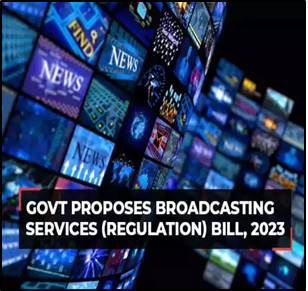“INDIA’S PROPOSED REGULATIONS ON INDEPENDENT ONLINE CONTENT”
Why in the news?
India is introducing new regulations for independent online content creators, requiring registration and content evaluation. The move aims to address accountability concerns and regulate news influence.
source:researchgate
About Proposed Regulations for Independent Online Content Creators:
- New Draft Bill: The Ministry of Information and Broadcasting has proposed the Broadcasting Services (Regulation) Bill 2024 to expand regulations on independent news creators on platforms like YouTube, Instagram, and X.
- Scope: This update extends beyond OTT content and digital news to include social media accounts and online video creators.
- Definition: The 2024 draft introduces “digital news broadcasters” covering news and current affairs through various online mediums.
- Obligations for Creators:
- Registration: Creators must notify the government of their activities and establish content evaluation committees.
- Content Committees: Committees must be diverse and the names of members must be disclosed to the government.
- Penalties: Fines of Rs 50 lakh for first-time violations and Rs 2.5 crore for subsequent offences within three years.
- Rationale and Implications:
- Government Justification: Regulations aim to ensure accountability for independent creators, especially those influencing public opinion ahead of elections.
- International Context: Unlike India, countries like Singapore regulate OTT platforms under broadcasting laws, while the US does not directly regulate OTT platforms.
- Enforcement Challenges: The bill could face challenges enforcing regulations on foreign creators.
| About Draft Broadcasting Services (Regulation) Bill 2024 :
Background:
Key Features: Definition of Digital News Broadcasters:
Code of Ethics:
Content Evaluation Committee (CEC):
|




